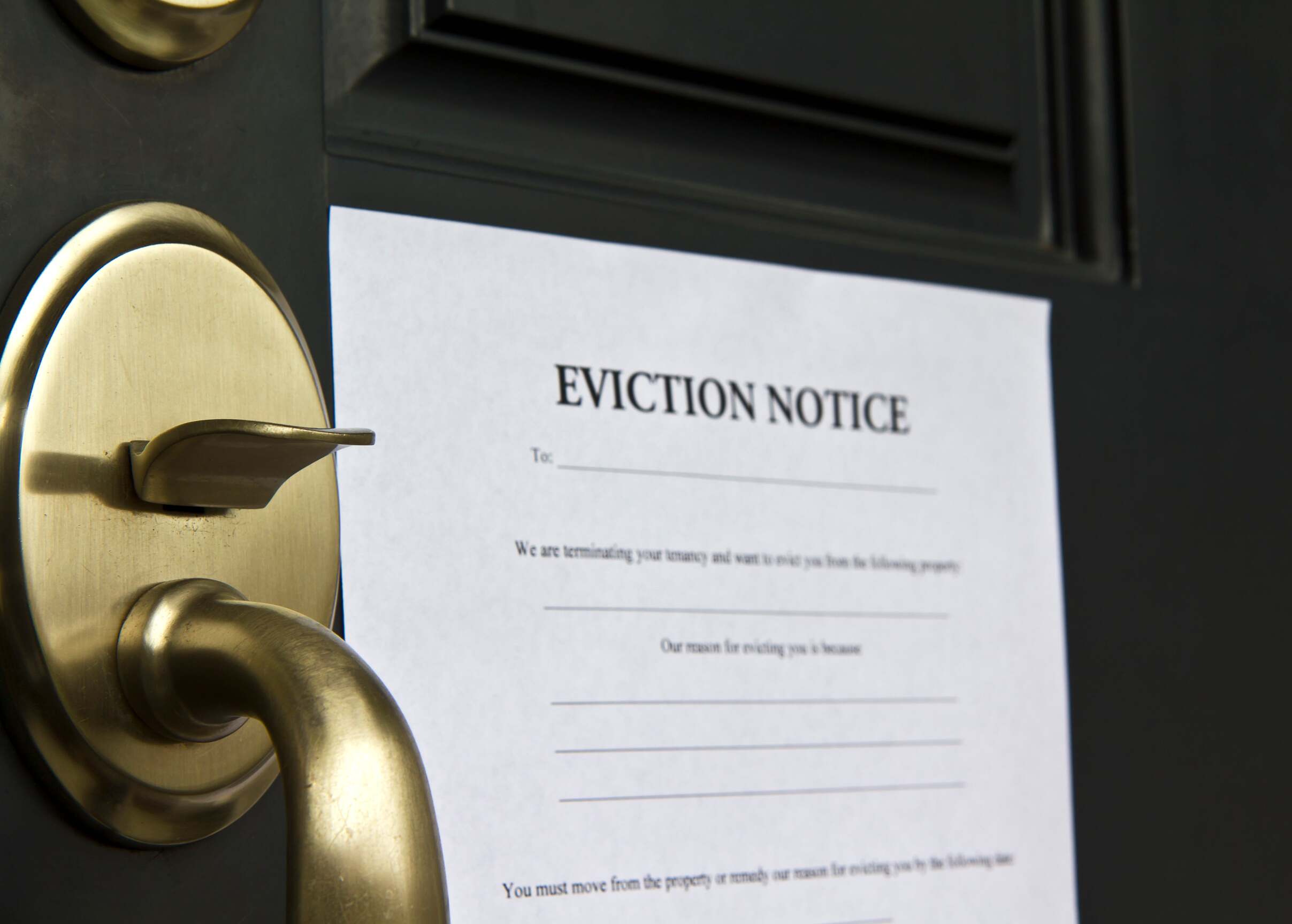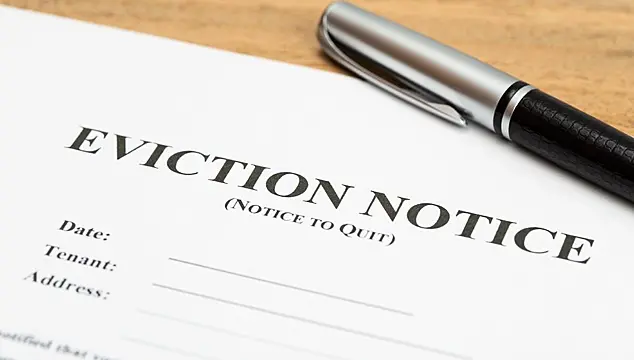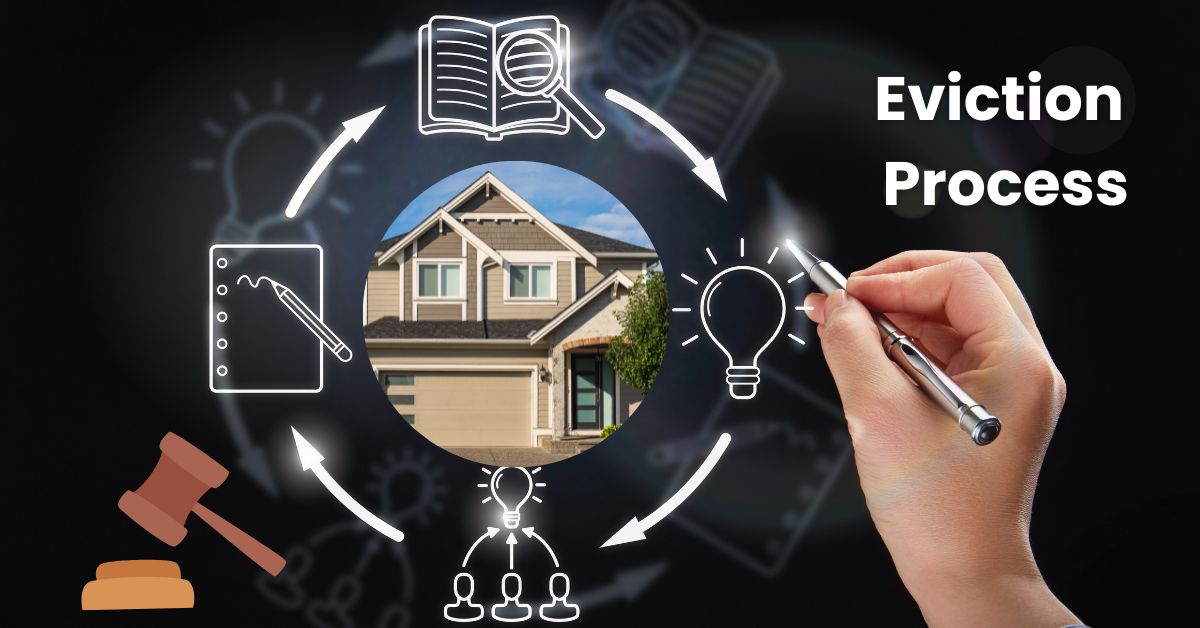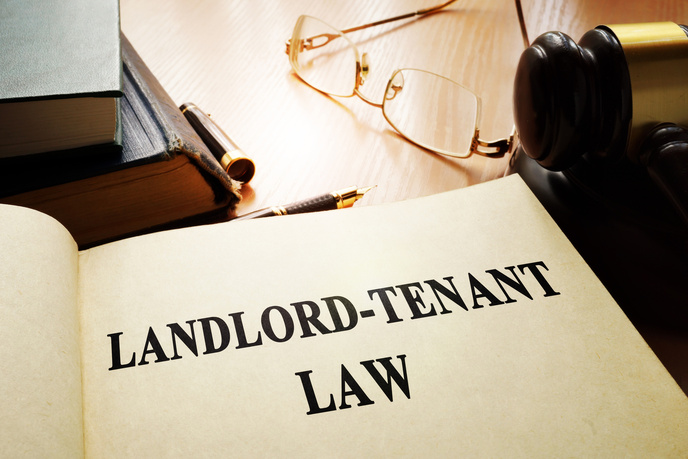Understanding the Florida eviction procedure is essential for Florida landlords in order to keep control of their properties and guarantee legal compliance. With new legislation changes about to take effect in 2025, knowing the proper processes is more critical than ever.
Explore this detailed guide with LeaseRunner to understand legal requirements, timelines, expenses, and necessary paperwork so you can handle tenant issues with assurance.
Key Florida Eviction Law Changes in 2025 (HB 615)
Florida's eviction rules were revised in 2025 with the adoption of HB 615, which had a substantial impact on the eviction process in Florida and went into effect on July 1. The main goal of this regulation is to update the ways that notices between landlords and tenants are sent.

As of 2025, Florida allows landlords and tenants to agree in writing to send legal notices by email or other electronic means. However, this new option does not apply to official legal documents in the litigation process. Eviction complaints, summons, and writs of possession still require traditional, physical service by a Sheriff or certified process server.
With the email communication option, once agreed, notices that can be sent via email include:
- 3-day notices for non-payment of rent.
- 7-day notices for lease violations (with or without cure options).
- Notices of non-renewal of tenancy.
- Security deposit claims.
- Notices regarding the landlord's right to access the premises (e.g., for repairs).
How It Works Under HB 615:
- Written Agreement Required: Email delivery is only valid if both parties explicitly agree in writing, typically within the lease agreement.
- Electronic Notices Must Be Trackable: Landlords are encouraged to use delivery methods that create a record of when the notice was sent and received.
- No Retroactive Enforcement: This method only applies to leases signed or amended after HB 615 took effect in 2025.
By giving the other party written notice, either party may change its email address or withdraw authorization for electronic notices at any time. Even if electronic distribution is agreed upon, traditional notification techniques are still viable possibilities. This update helps avoid delays in the legal process by giving landlords a quicker and more verifiable way to communicate, particularly when interacting with absentee or unresponsive tenants.
Legitimate Grounds for Eviction in Florida 2025
Before starting the eviction process in Florida, landlords must have a legally acceptable reason for removing a tenant. Florida’s updated eviction laws specify particular grounds for eviction, each of which calls for a different kind of notice and time frame.
Nonpayment of Rent (3-Day Notice to Pay or Vacate)
Failure to pay rent is one of the most common reasons for eviction. The landlord is required to give a 3-Day Notice to Pay or Vacate if a tenant fails to pay rent. Except for weekends and legal holidays, the tenant has three business days to either pay the past-due rent or vacate the rented property. The landlord has the right to file a formal eviction case in court if the renter doesn't cooperate.
Lease Violations (7-Day Notice to Cure or Quit)
A lease violation happens when a tenant violates a provision of the rental agreement, such as allowing illegal residents, smoking in non-smoking apartments, or neglecting to maintain the property. In these situations, the tenant has seven days to fix the problem once the landlord serves a 7-Day Notice to Cure or Quit. The landlord may proceed with the eviction process in Florida by following the proper court procedure if the tenant does not address the violation within the notification time.
Serious or Illegal Conduct (7-Day or 24‑Hour Notice)
According to Florida law, a tenant may be evicted more quickly if they commit crimes, cause property damage, or take activities that endanger their health and safety. The landlord may provide a 7-Day Unconditional Quit Notice, depending on how serious the situation is.
Because of the danger to the community or property, these cases are frequently given precedence in court. In this case, landlords must be ready to provide clear evidence to support the claim, and legal aid may be available to tenants accused of serious violations.
Expired Lease or Holdover Tenant (15–60‑Day Notice)
Tenants that refuse to vacate after their lease has expired are referred to as holdover tenants. In order to end a month-to-month or expired lease, landlords must give written notice in advance.
According to Florida Statute 83.57, the notice period required varies according to the frequency of rent payments: 15 days for month-to-month rentals, 7 days for week-to-week tenancies, 30 days for quarter-to-quarter tenancies, and 60 days for year-to-year tenancies. Landlords must follow Florida's formal eviction procedure to legally remove a tenant even after the lease has ended.
Squatter Removal
Florida's HB 621 strengthens landlord rights by drastically altering the process by which property owners may remove squatters. In order to deal with "unauthorized persons" who are not legally permitted on residential land, this statute offers a quicker, extrajudicial method.
Who it Applies To: Illegally entering and occupying a residential property without authorization, a lease, or a family relationship to the owner. Tenants who are involved in ongoing legal challenges or who are current or past tenants are exempt.
Expedited Process:
- Owner Files Complaint: The property owner submits a sworn complaint to the Sheriff, detailing the unauthorized occupancy.
- Sheriff Acts: The Sheriff verifies the complaint, then immediately serves a notice to vacate and places the owner in possession. The Sheriff can also arrest the occupant for trespass.
Learn more about Florida Squatter Rights and 2025 legal updates impacting landlord actions.
How to Serve a Florida Eviction Notice Legally
The first official stage in the eviction process in Florida is serving an eviction notice, which needs to be done appropriately to prevent delays or court dismissal. The format, time, and delivery methods that landlords must follow to serve legitimate eviction notices are specified by Florida law.

Select the Correct Notice Type (3‑, 7‑, or 24‑Hour)
Choosing the right type of notice is critical. The kind of violation will determine the notice you need:
- 3-Day Notice to Pay or Vacate for nonpayment of rent
- 7-Day Notice to Cure or Quit for fixable lease violations
- 7-Day Unconditional Quit Notice for serious or repeated violations
- 24-Hour Notice in cases of extreme behavior or illegal activity
- 15–60 Day Notice for ending month-to-month leases or holdover tenants
Using the wrong notice or including the wrong timeframe can result in the case being thrown out, undermining your landlord rights.
Required Notice Content (Statutory Compliance)
Florida law requires specific information to appear on every eviction notice. To comply with statutory requirements, your notice should include:
- Tenant’s name and property address
- The reason for the eviction (e.g., unpaid rent, lease violation)
- The exact number of days to comply or vacate
- A clear demand (e.g., pay rent or leave)
- Signature and date of the landlord or property manager
A vague or incomplete notice may violate tenant protections and give the court reason to side with the tenant, even if the grounds for eviction are valid.
Approved Delivery Methods
To be legally valid, the eviction notice must be delivered using one of the methods permitted by Florida law:
- Personal delivery to the tenant
- Posting the notice in a visible spot on the rental unit and mailing a copy
- Certified mail with return receipt
- Email or electronic delivery (only if both parties agreed in the lease under HB 615)
Keep documentation of how and when the notice was served. This will be important if the case moves to court.
Common Notice Mistakes to Avoid
Landlords often make preventable mistakes that delay or derail the eviction:
- Serving the wrong notice type for the situation
- Miscounting days (e.g., including weekends or holidays when you shouldn’t)
- Leaving out required legal language
- Using non-approved delivery methods
- Serving notice after starting court proceedings (must be done first)
Even a small procedural error can result in the dismissal of your case and require starting the eviction process in Florida all over again. When in doubt, consult an attorney or a legal aid service to ensure full compliance.
Step-by-Step Florida Eviction Process (Unlawful Detainer)
Once the eviction notice period ends and the tenant hasn’t complied, the formal eviction process in Florida begins. This legal process must follow a precise series of steps to comply with Florida’s legal procedures and protect both landlord rights and tenant protections.

Step 1 – Serve the Appropriate Eviction Notice
As mentioned in the previous section, you must have given the tenant the appropriate notice (3-Day, 7-Day, etc.) before submitting any paperwork to the court. Before the court process begins, the tenant is given a legal chance to comply with this notice, which starts the clock.
Step 2 – File an Eviction Complaint in County Court
If the tenant doesn’t comply with the notice, the landlord can file an eviction complaint (along with a summons) in the county court where the rental property is located. You’ll need:
- A copy of the lease (if one exists)
- The eviction notice you served
- Proof of delivery
- Payment of court filing fees
Step 3 – Serve Summons & Complaint
Legally serving the renter with the summons and complaint is the next step. Usually, a professional process server or the sheriff handles this. The tenant now takes on the role of "defendant" in the case and has a predetermined amount of time—typically five business days—to reply to the court in writing.
Step 4 – Tenant’s Response Period or Default Judgment
After being served, the tenant has the right to respond to the court with a justification for why the eviction should not go forward. If they do not respond by the time limit, the landlord may request a default judgment, allowing you to skip the hearing and proceed directly to regain possession. Even if the tenant's claims are weak, the case moves forward to a court hearing if they do reply.
Step 5 – Court Hearing: What to Expect
During the court hearing, both the landlord and the tenant will present evidence, including the lease agreement, rent payment records, pictures, communication logs, and other documents. The judge will determine whether the landlord followed the correct legal processes and whether the tenant has a viable defense.
Even if the tenant objects, Florida courts typically favor the landlord if all documentation is in order and notices were properly served.
Step 6 – Obtain a Final Judgment & Writ of Possession
If the landlord wins, the judge will enter a final judgment of possession. This paper grants you the legal right to repossess your rented property. You will then request a writ of possession, which allows the sheriff to remove the renter if they do not depart voluntarily.
Step 7 – Sheriff Lockout + Post-Writ Vacate Period (24 hrs)
The sheriff will serve the writ on the tenant's door, giving them 24 hours to leave the property. If the tenant is still present after that time, the sheriff will return to physically remove them and return the property to the landlord.
Landlords must not take issues into their own hands during this stage, as this violates tenant rights and may result in legal consequences. Only the sheriff has the authority to conduct the lockout.
Florida Eviction Timeline in 2025: How Long Does It Really Take?
For landlords, understanding the typical timeline and potential delays is crucial for financial planning and managing expectations for regaining possession of their rental property.
Florida Eviction Costs in 2025: Fees & Financial Risk
Understanding the costs involved in the eviction process in Florida is just as important as knowing the steps. While a straightforward eviction may seem simple, the actual expenses can quickly add up—especially if the case becomes contested or drags on.
Here are the estimate cost based on each stage of the eviction process in Florida:
Even if you’re handling the eviction yourself, several hidden costs can affect your bottom line:
- Lost Rent Payments: Especially in lengthy or contested cases, you may lose 1–3+ months of rental income.
- Property Damage Repairs: Tenants facing eviction may leave behind damage or trash.
- Turnover Costs: Cleaning, maintenance, advertising, and screening new tenants.
- Court Delays: Each delay can add unpaid rent and legal stress.
- Vacancy Time: Extended periods without a paying tenant after removal.
Must-Have Documentation for Florida Evictions
Proper documentation can make or break an eviction case in Florida. Whether you're dealing with nonpayment, a lease violation, or removing a squatter, the court will require evidence that backs up your claim and demonstrates that you followed the proper legal steps.
Lease Agreement & Rental Payment Records
A written lease agreement serves as your first line of defense. It includes the terms of tenancy, rent amount, due dates, late fees, and rules that the renter committed to obey. Combine this with a thorough record of rent payments, including dates, amounts, and any missed or incomplete installments.
- Digital ledgers, bank statements, and rent receipts all contribute to demonstrating that the tenant is in breach of the agreement.
- If there is no written lease, provide other proof of the agreement (text messages, email conversations, etc.).
Download a customizable Florida lease agreement to protect your rental and outline clear terms with tenants.
Proof of Rent Owed or Lease Violations
To proceed with the eviction process in Florida, landlords must show that the tenant either failed to pay rent or broke the agreement in a specified way.
- For nonpayment, provide a rent ledger or breakdown that shows exactly what is owed.
- For lease violations, include dated copies of notices served (7-Day Notice to Cure or Quit) as well as descriptions of the violation, such as noise complaints or unauthorized occupants.
Photos, Communication Logs, Warning Notices
Visual and written records can be powerful. If the tenant has damaged the unit, allowed unauthorized pets, or caused disturbances, include:
- Time-stamped photos or videos
- Texts, emails, or letters where you addressed the issue
- Copies of prior warnings issued
Property Condition Documentation (Move-In/Move-Out)
To minimize conflicts and ensure fair deductions from security deposits, landlords should properly document the property's condition during both the tenant's move-in and move-out. This record-keeping is critical for distinguishing between true tenant-caused damage and normal wear and tear.
- Use checklists and signed move-in/move-out inspection forms.
- Take dated photos or videos during both phases.
Squatter Affidavit Forms (for HB 621 process)
HB 621 allows landlords to use an affidavit to direct law enforcement to remove transitory occupants in unlawful detainer (squatter) instances, removing the requirement for a court filing.
- This is an alternative to the usual unlawful detainer court process, which is still used for other undocumented people who do not fulfill the "transient" condition or if direct removal fails.
- The paperwork usually includes the date the squatter was discovered and a statement that no lease or authorization was granted.

Common Landlord Errors to Avoid During Evictions in Florida
Even with a valid reason and adequate evidence, many landlords in Florida unintentionally delay or risk the eviction process by committing avoidable mistakes. Florida law is strict on how evictions should be handled, and a single error can result in dismissal, legal penalties, or even liability for the tenant.
1. Using the Wrong Type of Eviction Notice
One of the most common mistakes is serving the wrong notification for the scenario. For example, instead of a 7-day Notice to Cure or Quit, issue a 3-day Notice of Lease Violation. Each sort of eviction has its own set of legal requirements, and utilizing the wrong one might render the entire procedure unlawful.
2. Failing to Deliver the Notice Properly
Even if the notice is correct, it must be delivered via an approved legal method (such as personal delivery, certified mail, or posting and mailing). Improper delivery can lead to the court rejecting the case.
3. Attempting “Self-Help” Evictions
Florida law prohibits landlords from locking tenants out, turning off utilities, or removing belongings without a court order and sheriff's involvement. These actions are illegal and can result in severe consequences, such as paying triple rent damages under the tenant protection legislation.
4. Skipping Documentation or Filing Too Soon
Many instances fail in court because the landlord did not properly document the issue or file before the required notification period expired. Judges expect clear, well-organized proof that you followed every step of the eviction process in Florida.
5. Not Understanding Tenant Rights and Defenses
Tenants may use retaliation, discrimination, or unsafe living conditions as a defense against eviction. If these arguments are supported, the court may side with the renter, even if they are overdue on their rent.
Run a tenant eviction history report to screen for prior removals before leasing your property.
Conclusion
Navigating the eviction process in Florida in 2025 entails more than just filing a notice and going to court. To avoid costly delays or legal setbacks, landlords must follow comprehensive procedures, respect tenant rights, and prepare strong paperwork in light of changing rules.
By understanding the valid grounds for eviction, selecting the appropriate notice type, correctly serving it, and following each legal step through the courts, landlords can legally and efficiently recover possession of their rental property.
FAQs
1. How long does the eviction process in Florida take in 2025?
The typical eviction timeline ranges from 3 to 8 weeks, depending on the reason for eviction, how quickly notices are served, whether the tenant responds, and court availability. Contested cases may take longer.
2. Can landlords evict tenants without going to court?
No. Florida law prohibits “self-help” evictions. Landlords cannot change locks, shut off utilities, or force a tenant out without a court judgment and a writ of possession enforced by the sheriff.
3. What notice is required for lease violations?
Landlords must serve a 7-Day Notice to Cure or Quit for curable violations (e.g., unauthorized pets). For serious or repeated offenses, a 7-Day Unconditional Quit Notice may apply.
4. How do I evict a squatter in Florida under HB 621?
You must file an unlawful detainer action and include a squatter affidavit stating that the person has no legal right to occupy the property. The process is separate from standard evictions.
5. Can tenants fight an eviction in court?
Yes. Tenants have the right to respond, appear in court, and present defenses, such as improper notice, unsafe living conditions, or retaliation. They may also qualify for legal aid.



